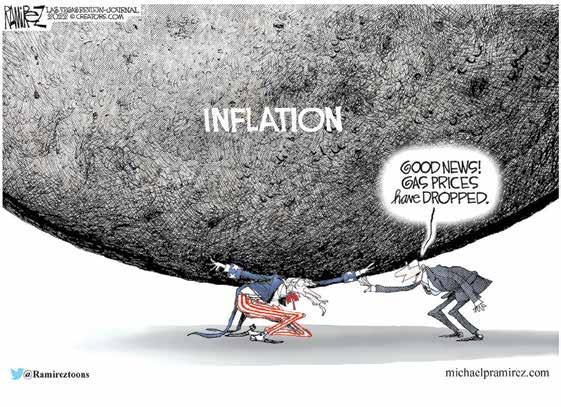
3 minute read
The Chaos Theory: Code Word for G-d By Rabbi David Sutton
The Jewish Home | SEPTEMBER 22, 2022
Jewish Thought The Chaos Theory: Code Word for G-d
By Rabbi David Sutton
Chovos HaLevavos quotes the following pasuk: “Praiseworthy is the man who has made Hashem his trust and turned not to the arrogant and to strayers after falsehood” (Tehillim 40:5).
A Midrash says that this pasuk refers to Yosef HaTzaddik. It depicts the slight fault he exhibited when he was imprisoned — a flaw that Hashem judged according to the standard expected of this exalted figure. Yosef’s mistake was that he relied too heavily on the advocacy of the wine steward, his fellow inmate in Pharaoh’s dungeon. Because Yosef told the wine steward, who was slated to be released, to remember him to Pharaoh, Yosef was forgotten for two more years. Asking this favor might seem like hishtadlus, but for Yosef, who felt Hashem’s Presence so keenly, it showed an inappropriate feeling of dependence on others. Because Yosef illustrated that he thought that the wine steward could get him released from the dungeon, Hashem showed him otherwise.
When we stop to consider the wine steward’s forgetfulness, another question emerges. How and why are some things remembered while others are forgotten? We might think this is random, but it is totally in the hands of Hashem. An article entitled, “Why Do We
Forget Things,” published in the magazine Scientific American, questions how our mind, which can store myriad memories, sometimes fails us when we try to recall specific things. The article points to a study by Edward K. Vogel, who notes that our brain can recognize items more easily than it can retrieve them. For example, if you were sent to the store to buy a specific type and brand of peanut butter, you may not be able to recall the up at another unpredictable phenomenon — the weather. The article “Why Can’t Scientists
Accurately Predict the Weather?” related that in the 1960s an MIT meteorologist named Edward Lawrence
name “Skippy, natural, chunky peanut butter.” But if you were shown two jars, you’d be able to identify the correct one. The article reports that we have an untold amount of information stored in our brain, but we can’t always retrieve what we want — and the scientists don’t know why. Science throws its collective hands coined the term “the butterfly effect” to explain why meteorologists could never predict the weather with 100 percent certainty. He stated that a butterfly flapping its wings in Asia could actually alter the weather in New York, due to all the unpredictable factors set in motion.
Lawrence is also known as the father of the Chaos Theory, a set of scientific principles used to describe highly complex systems, such as weather, that can’t be predicted with complete accuracy. Even with all the technology available, meteorologists can accurately predict the weather only about twelve hours in advance. “Chaos theory” is their name for their inability to account for all the factors that lead to a specific outcome.
What science calls “Chaos Theory,” the Torah calls Hashem’s unfathomable intelligence. Scientists realize that “chaos” can break any natural rule and cause any outcome; they simply cannot admit that chaos is not really chaos. It is Hashem running His world: pure hashgachah pratis.
There are certain areas in which Hashem outwardly shows His control, and weather is one of those areas. We can try to predict it but it’s all in Hashem’s hands.
We should be aware that any time we hear scientists saying, “We don’t know why” or “We can’t explain it,” that is code for G-d.
This is fairly obvious with regard to the weather, but it applies to memory as well: Why is a certain phrase suddenly forgotten mid-speech?
Mishlei (16:1) expresses this concept: “To man belongs the arrangements [of thoughts in] his heart, but from Hashem comes the tongue’s reply.”
That is our point. We do our hishtadlus, put forth the effort, call the buyer, apply for the job, speak to the shadchan, talk to the “wine steward” who can put in a good word for us, but — is he going to remember our name at the right time? That’s in the hands of G-d, and that’s the bitachon approach to the “Chaos Theory.”











